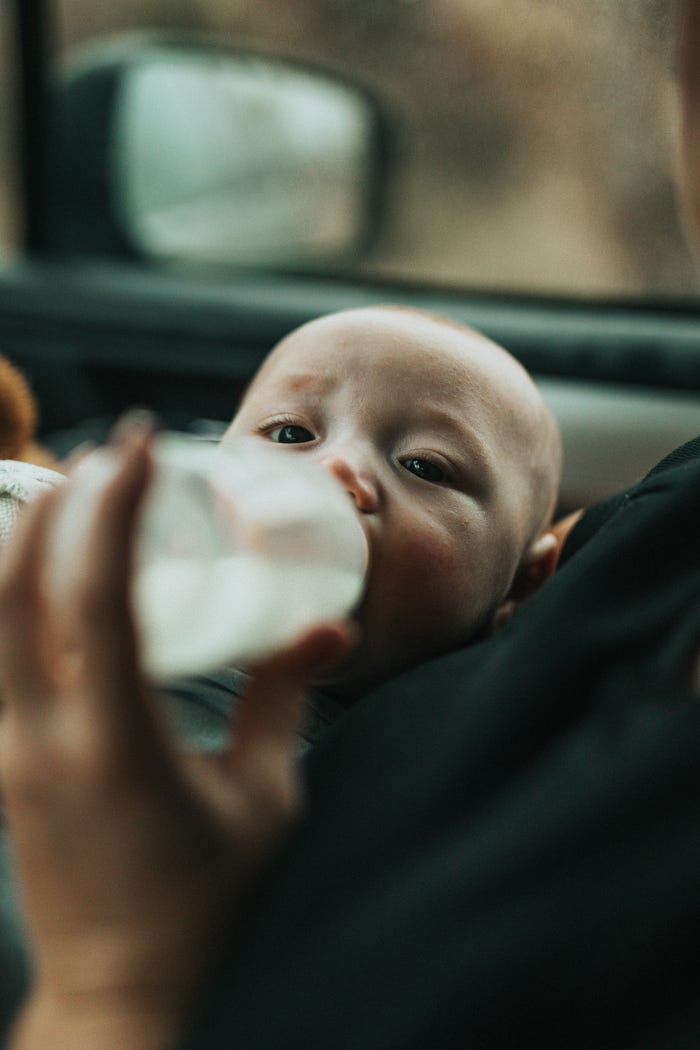How to Donate Breast Milk

If you are producing more liquid gold than your baby can consume, consider this a blessing! As a nursing mom, you already know the benefits of breast milk but did you know you can donate your extra milk and help other families in need? In fact, women have been sharing breast milk for as long as humans have walked the earth.
Here’s some info on how, where, and why to donate breast milk!
Milk Banks
Milk Banks serve as a liaison between milk donors and families seeking milk for an infant. They are organizations with rigorous safety protocols in place and they are the best place to start if you want to donate milk.
To find a milk bank in your area, visit the Human Milk Banking Association of North America (HMBANA).
What are the criteria for donating breast milk?
To donate breast milk, you…
- Must be in good health and live a healthy lifestyle (meaning, you don’t smoke or use drugs)
- Have breast milk in excess of what your child needs (you should never take milk away from your own baby to donate)
- Are able to freeze your breast milk and practice hygienic breast milk storage
- Use only medications and/or supplements that are approved for donors
- Meet minimum donation requirements (in ounces) for your milk bank
- You can also donate leftover milk if it’s less than 6 months old and has been properly labeled, stored, and frozen, and meets the other screening requirements.

Sign me up! What’s next?
Breast milk donation starts with a screening process which includes a phone interview and an application. From there, you will be required to have a blood test and in some cases, you may also need to provide a note from your pediatrician confirming that your newborn is healthy and fed and that you indeed have enough milk to spare.
Once you have been approved as a donor, the Milk Bank will direct you to a local depository where you can drop off your milk or they will provide you with shipping materials to ship your milk to the bank. Shipping costs are covered by the milk bank.
Where does my milk go?
Donated milk is processed, screened, pasteurized, and distributed by the milk bank based on need. Milk banks prioritize distribution to the highest risk infants — namely, those in NICU and born with critical illnesses — before outpatient families. A doctor’s prescription is required for donor breast milk.
Milk Sharing Networks
In addition to milk banks, many moms share breast milk via peer-to-peer networks. Less formal than milk banks, these networks rely on the 4 Pillars of Safe Milke Sharing which are:
- Informed Choice
- Donor Screening, Transparency & Self-Exclusion
- Safe Handling
- Pasteurization
With peer-to-peer milk sharing, you can provide your milk to any baby in need including healthy children of varying ages and/or with parents who are unable to provide enough milk. Since these groups operate in regional chapters, there is a high likelihood that you will be sharing your milk with a family in your community through direct exchanges which can be a rewarding experience.
Eats On Feets was started by Shell Walker Luttrell, a midwife in Arizona, and has been a reputable network since 2010 with chapters worldwide. They offer valuable resources and support for safe and ethical milk sharing. Milk sharing is conducted on regional Eats on Feets Facebook page.
Families receiving milk from a milk sharing community should consult with their pediatrician to understand the potential risks of milk sharing.
Whether you donate through a milk bank or a milk share network, here are the steps to prepare your milk for a safe donation:
- Sterilize your pump and all accessories.
- Wash your hands and make sure you are pumping in a clean uncontaminated area.
- If you pump into bottles, transfer it carefully into bags for freezing. Be careful not to touch the milk with your hands.
- Label the bags with the date and time of your pumping session and how many ounces.
- Make sure your freezer is set to the coldest setting for proper storage.
- Follow all the additional proper guidelines given by the milk bank or your place of donation.
- If you are sick and/or on medication or have milk that may be affected by a lifestyle choice (alcohol, drugs, and/or tobacco), you will need to disclose this information to your milk bank or milk recipient and skip donation of affected batch.
Donating breast milk saves lives but it is also a big commitment. It is important to take time to understand the process and requirements so that you are able to provide milk safely and protect yourself from any liability.
With the help of milk banks and milk sharing programs, donating your extra liquid gold can save lives, and nourish children in your community and beyond!

